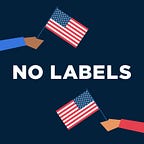With less than a month left in the lame duck session of Congress, lawmakers are once again at loggerheads over a new COVID-19 relief proposal. Last week, the House Problem Solvers Caucus (PSC) and a bipartisan group of nine senators proposed a $908 billion stimulus package, while Senate Majority Leader Mitch McConnell and other Senate Republicans had previously pushed a $500 billion “skinny” proposal. Here are five facts on COVID-19 relief proposals.
The majority of the funds in the GOP bill are for small business relief with $332.7 billion in total aid and $257.2 billion specifically set aside for the Paycheck Protection Program (PPP). It also includes COVID-19 liability shields for businesses — a measure opposed by many Democrats. Similarly, the PSC bill includes $288 billion for PPP loans as well as Economic Injury Disaster Loans and aid to restaurants.
The GOP bill allots $16 billion to virus testing and contact tracing and an additional $31 billion for COVID-19 vaccine development and distribution. The PSC bill sets aside $16 billion for testing, contract tracing, vaccine development and distribution.
Following small business relief, schools would receive second most funding in the GOP bill. It sets aside $105 billion for K-12 education and colleges to provide resources for continued learning and “help get students back in school”. The PSC plan includes $82 billion schools and colleges.
This represents the biggest difference between the two bills. The PSC proposal allots $160 billion to state and local governments to help them deal with the declining tax revenues resulting from the COVID-19 crisis. Moody’s Analytics estimates that state and local governments face shortfalls of $450 billion through the 2022 fiscal year and roughly 4 million jobs could be lost if no aid is provided.
Current unemployment benefits from the CARES Act run out for most Americans on December 31. Federal and local eviction limits, also expiring on December 31, leave roughly 19 million Americans at risk of losing their homes, according to a recent report issued by the National Low Income Housing Coalition. The PSC bill sets aside $180 billion for additional unemployment insurance, providing jobless Americans with $300 in weekly checks for 18 weeks — smaller than the $600 in benefits from the original CARES Act. The PSC bill also includes $25 billion for rental assistance. The GOP bill does not contain a general expansion of unemployment benefits and instead offers a one-month extension of the Pandemic Unemployment Assistance program for gig workers created by the CARES Act. The aid would continue from December 31 until January 31.
Originally published at https://www.nolabels.org on December 9, 2020.
